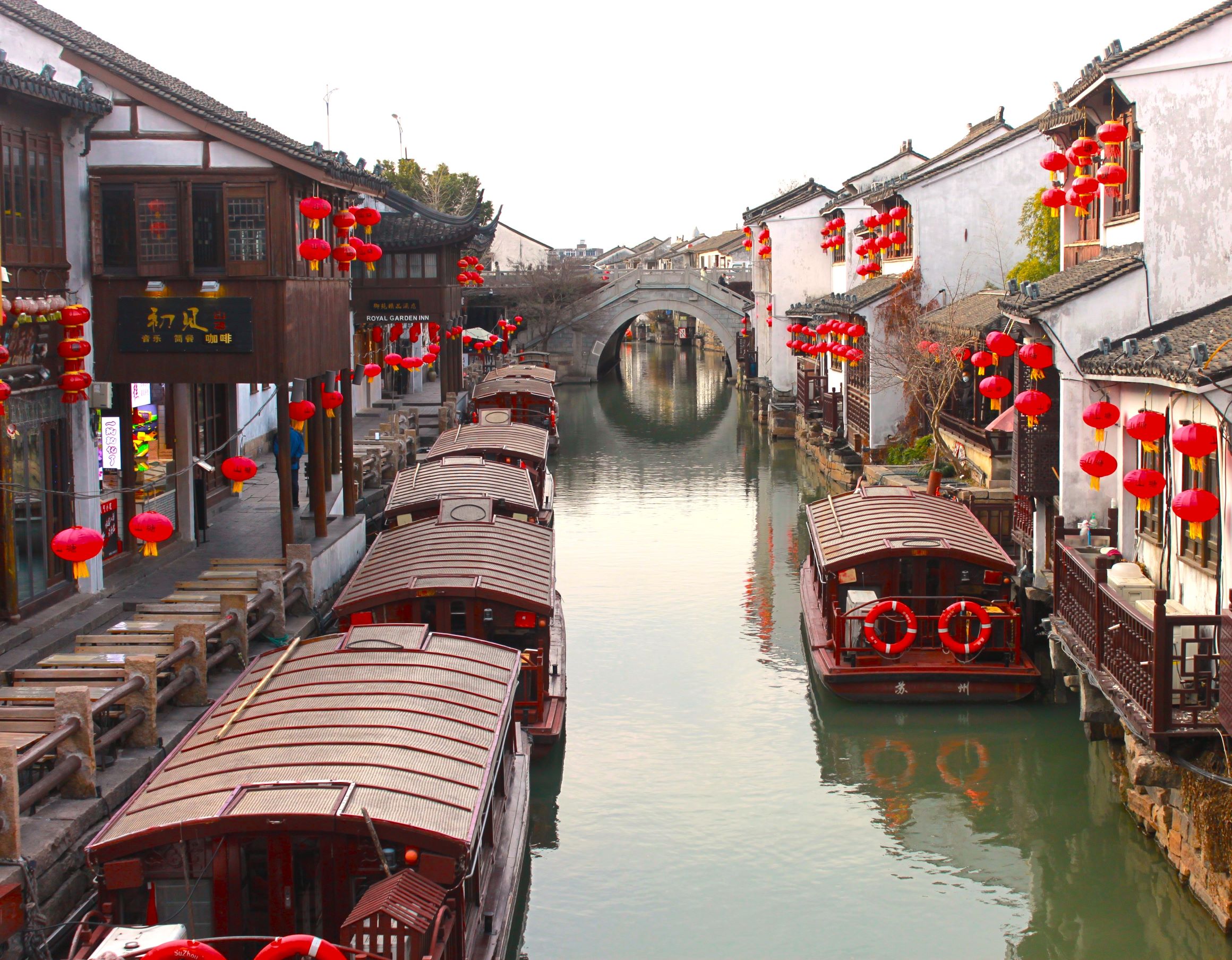Suzhou, China
Suzhou is a city located in the eastern province of Jiangsu, in China. The city has a population of over 10 million people, and is known for its beautiful gardens, waterways, and ancient architecture. Suzhou was once an important center of trade and culture, and is home to a number of important historical and cultural sites.
The economy of Suzhou is largely driven by manufacturing and technology, with many factories and research centers located in the city. The city is also a major tourist destination, with many hotels, restaurants, and other businesses catering to visitors.
The weather in Suzhou is typical of the region, with hot, humid summers and cold, dry winters. The average temperature in the summer is around (26-32°C) 79-90°F, while in the winter it can drop to around (3-6°C) 37-43°F. The city experiences two main seasons: the rainy season, which runs from April to September, and the dry season, which runs from October to March.
The best time to visit Suzhou is generally considered to be between March and May, when the weather is warm and sunny, and the city is at its most beautiful. However, the city is a popular destination year-round, so it is important to plan ahead and book accommodations and activities in advance.
There are many things to do and see in Suzhou. Visitors can spend their days exploring the city’s many historical and cultural attractions, such as the Humble Administrator’s Garden, which is considered one of the finest examples of classical Chinese garden design. The city is also home to a number of museums and art galleries, such as the Suzhou Museum, which showcases traditional Chinese art and culture.
In addition, Suzhou is known for its vibrant nightlife, with a number of bars, clubs, and restaurants offering live music and entertainment. The city is also home to a number of markets and shopping centers, where visitors can purchase souvenirs and other goods.
Overall, Suzhou is a vibrant and exciting city with something for everyone. Whether you’re interested in history and culture, or just looking to relax and enjoy the beautiful weather.
The majority of the population is of Han Chinese descent, but there are also significant populations of people of other ethnicities, such as Hui, Wu, and She.
The culture of Suzhou is heavily influenced by its location in the Yangtze River Delta, and by its rich history as a center of trade and culture. The city is known for its vibrant nightlife, with a number of bars, clubs, and restaurants offering live music and entertainment.
In terms of food and beverages, Suzhou has a wide variety of restaurants and bars to choose from. The city is known for its traditional Suzhou cuisine, which is often cooked in a wok and flavored with local herbs and spices. Popular dishes include Suzhou-style noodles, which are made with thin, wheat-based noodles, and Dongpo pork, which is slow-cooked pork belly served with a sweet and savory sauce.
Suzhou is also home to a number of bars and clubs, which offer a variety of drinks, including cocktails, beer, and Chinese-style spirits. The city is known for its vibrant nightlife, with many bars and clubs staying open until the early hours of the morning.
The cityscape of Suzhou is characterized by its many historical and cultural attractions, such as the Humble Administrator’s Garden, which is considered one of the finest examples of classical Chinese garden design. The city is also home to a number of museums and art galleries, such as the Suzhou Museum, which showcases traditional Chinese art and culture.
Suzhou is located inland, and is not known for its beaches. However, the surrounding area is home to a number of forests and mountains, which are popular for hiking and other outdoor activities. The nearby forests are home to a variety of wildlife, including deer, wild boar, and birds of prey.
It is important to be aware of cultural differences when it comes to greetings and physical contact. In China, it is common for people to greet each other with a handshake. It is also important to be aware of cultural differences when it comes to gifts and gestures of respect. In China, it is considered rude to give someone a clock as a gift, as the word for “clock” sounds similar to the word for “death” in Chinese. Similarly, it is considered rude to give someone a book, as the word for “book” sounds similar to the word for “lose” in Chinese.

